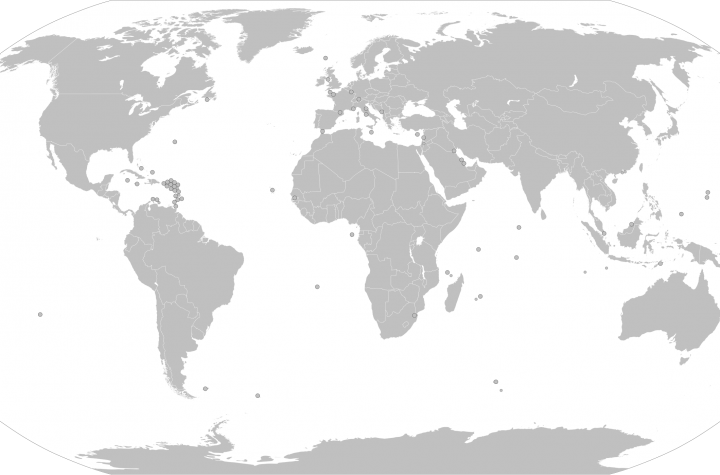There is a lot in the press about SOPA but I have not seen any info that makes it easy to understand what the bill proposes, so I thought I would take a shot.
1. For websites outside the US – the U.S. Attorney General could require US-directed Internet service providers, ad networks, and payment processors to suspend doing business with sites found to infringe on federal criminal intellectual property laws
2. Rights holders can stop ad providers or payment providers from servicing the target website. The target website has to prove innocence to stop ad providers/payment providers in order to stop them from cutting the site off.
If target site provides evidence to show they are not doing what is claimed, plaintiff can file to have the hosting company stop hosting the site.
3. A plaintiff who falsely makes accusations would be liable for damages.
The act appears to be targeted at stopping “piracy” websites from getting revenue from their activities.
4. DNS circumvention tools would also be illegal under the act exposing dissidents to retaliation from governments and other groups.
5. Businesses who host use content will be liable for the content uploaded by their users. Blogs and video sharing websites will be effected.
6. Site which link to “pirate” sites could also be held liable for content on linked to sites.
7.
Weakening of “safe harbor” protections
The 1998 Digital Millennium Copyright Act (DMCA) includes the Online Copyright Infringement Liability Limitation Act, that provides a “safe harbor” for websites that host content. Under that provision, copyright owners who felt that a site was hosting infringing content are required to request the site to remove the infringing material within a certain amount of time.[39][40][41] SOPA would bypass this “safe harbor” provision by placing the responsibility for detecting and policing infringement onto the site itself, and allowing judges to block access to websites “dedicated to theft of U.S. property.”[42]
8. It is alleged that sites which specifically gain revenue from “pirate” activities will be effected by the bill. Given that “pirate” sites are so uncommon the DMCA provision are more than sufficient.
The SOPA legislation makes it much easier for site owners to be harassed and their income effected by spurious and tenuous claims from alleged rights holders.
As if to echo the point An aide to Rep. Smith said, “This bill does not make it a felony for a person to post a video on YouTube of their children singing to a copyrighted song. The bill specifically targets websites dedicated to illegal or infringing activity. Sites that host user content—like YouTube, Facebook, and Twitter—have nothing to be concerned about under this legislation.”
9. The cost to the US taxpayer will be huge whereas currently the cost is on the actual rights holder. SOPA will recruit the US taxpayer to work on behalf of the large rightsholders.
Edward J. Black, president and CEO of the Computer & Communication Industry Association, wrote in the Huffington Post that “Ironically, it would do little to stop actual pirate websites, which could simply reappear hours later under a different name, if their numeric web addresses aren’t public even sooner. Anyone who knows or has that web address would still be able to reach the offending website.”[64]
An editorial in the San Jose Mercury-News stated, “Imagine the resources required to parse through the millions of Google and Facebook offerings every day looking for pirates who, if found, can just toss up another site in no time.”[65]
John Palfrey of the Berkman Center for Internet & Society commented, “DNS filtering is by necessity either overbroad or underbroad; it either blocks too much or too little. Content on the Internet changes its place and nature rapidly, and DNS filtering is ineffective when it comes to keeping up with it.”[27]
Opponents
Opponents include Google, Yahoo!, YouTube, Facebook, Twitter, AOL, LinkedIn, eBay, Mozilla Corporation, Roblox, Reddit,[106] theWikimedia Foundation,[107] and human rights organizations such as Reporters Without Borders,[108] the Electronic Frontier Foundation(EFF), the ACLU, and Human Rights Watch.[109]
Supporters
The legislation has broad support from organizations that rely on copyright, including the Motion Picture Association of America, the Recording Industry Association of America, Macmillan US, Viacom, and various other companies and unions in the cable, movie, and music industries. Supporters also include trademark-dependent companies such as Nike, L’Oréal, and Acushnet Company
List of organizations with official stances on the Stop Online Piracy Act
All info on this article from Wikipedia SOPA






More Stories
Judicial Watch Opposes Justice Department Effort to Delay Decision Regarding Special Counsel’s Biden Interview Transcripts
Report: Flyers Urging Illegals To Vote For Biden Found In Left-Wing Group’s Office In Mexico
FBI found it ‘alarming’ that Fauci-funded virus research at Wuhan lab would leave no trace of ‘human manipulation’